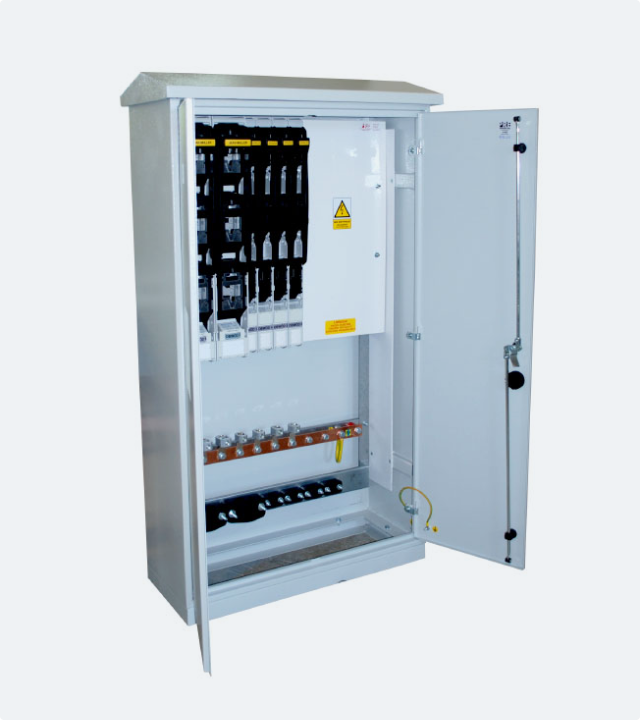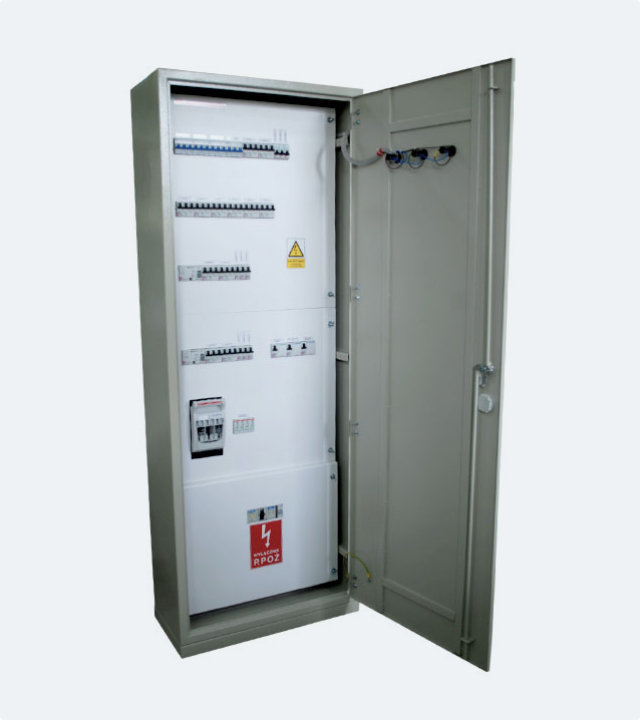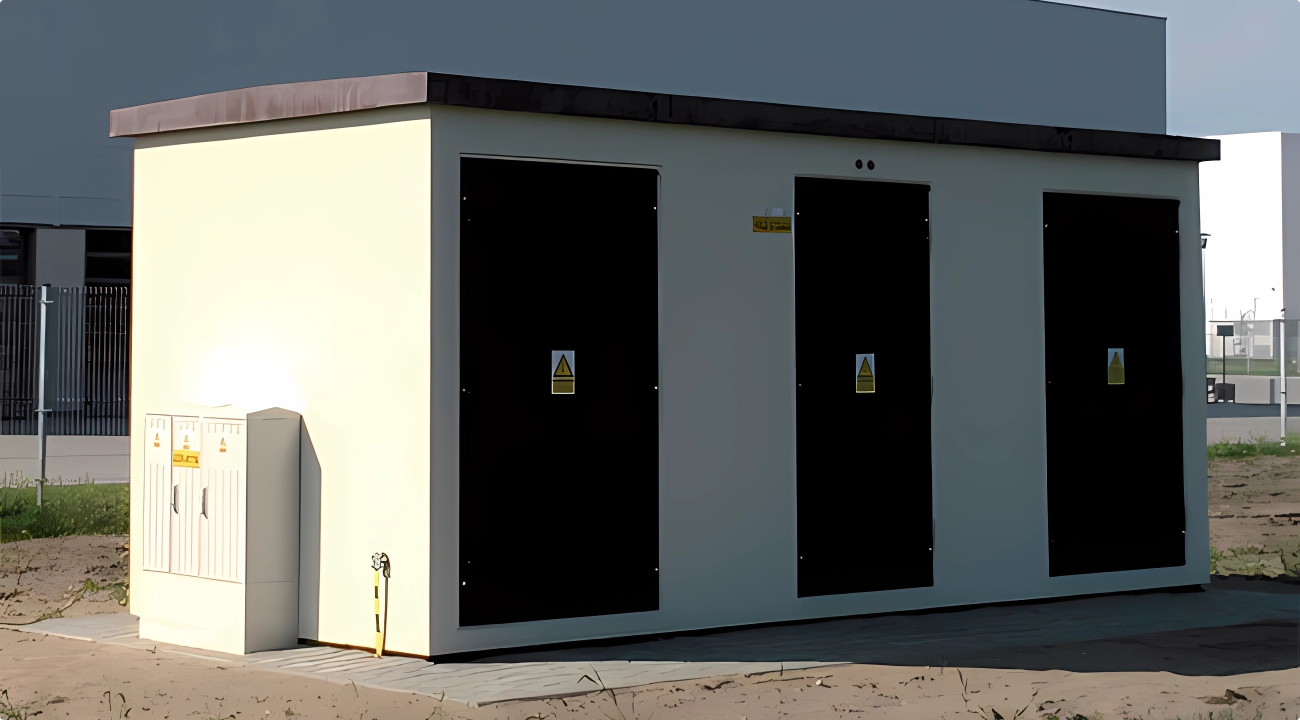Electrical cabinets, transformer stations

Cable connection cabinets
- for low-voltage distribution cable networks
- distribution of electricity and protection of electrical devices against short circuits and overloads on the low-voltage side

Modular switchgear up to 630A
- for low-voltage distribution cable networks
- distribution of electricity and protection of electrical devices against short circuits and overloads on the low-voltage side

KSZ, KSW, KSWz Container transformer stations
Container transformer stations and MV cable connections in KSZ enclosures, as well as KSW enclosures operated from the inside, and cable connections in ZKSN enclosures, are designed to supply municipal consumers, construction sites, and industries through cable-overhead or medium-voltage cable networks.
If it is necessary to implement a different station configuration, we provide professional technical advice. For the agreed-upon stations, the company carries out a design adaptation, which includes structural and electrical components.
Frequently asked questions
What is your delivery time?
Standard delivery time is approximately 6-8 weeks depending on the order. Please contact us to arrange a more detailed delivery date.
What effects do your charging stations have?
We offer an extensive range of products, encompassing both AC and DC EV chargers featuring diverse equipment configurations and power outputs. The power spectrum of our EV chargers includes:
- AC 3.7-43 kW
- DC 40-480 kW
Who installs charging stations?
Charging stations are only installed by Swedish certified electricians.
How fast do your stations charge?
The fastest DC chargers can charge a car in up to half an hour. Charging time for electric vehicles depends on:
- EV charger power
- battery capacity
- the power of the converter installed in the car.
Which station is best for private use?
The best choice for private use are small stations such as:
- EVB E-wall - mounted in the wall not only makes it much easier to use, but also blends almost seamlessly into the façade and improves its aesthetics.
- EVB Wallbox 2M AC - it can be hung on the wall in the garage, thanks to which it takes up little space and can charge two cars at the same time. Charging point power up to 22 kW.
How is the advertising content on EVB Adverts charging stations managed?
Advertising content on EVB Advert chargers is managed using the Digital Signage Android Player. It is an extremely functional software for remote management of content on the monitor. The software allows you to manage content from any place with Internet access - just log in to the relevant website, upload videos, images, webpages, RSS feeds, remote content, divide the screen into any number of screen areas of any size and position, and much more. The big advantage of Central Stacks software is that the server is in the cloud, so the client does not need to install and maintain it on its side, and therefore the content of any connected media can be managed anywhere and on any device by logging into the server through a web browser.
Our billing model for Central Stacks licenses is also very simple and transparent, unlike many other systems on the market, since the annual license price already includes all the costs incurred by the customer for the system including server maintenance, etc., so at each stage of the project the customer knows exactly how much it will cost him to expand the DS network with additional installations.
How to settle accounts with charger users?
Our stations are equipped with a measurement and billing system, which enables quick settlement with the customer. Settlements are made via mobile applications, RFID cards or a payment terminal.
What is the difference between charging a car with AC and DC?
In the simplest terms, the key distinction lies in the charging speed of the vehicle. In the case of alternating current (AC), the EV is usually charged slower compared to direct current (DC), because the alternating current needs to be converted, and the charging speed depends on how much current the wallbox can supply and how much current the vehicle battery can handle. Charging with alternating current is the most popular method of charging electric vehicles and is widely used, among others, while charging at home.
DC charging, on the other hand, is a faster charging option often used in public places using chargers with higher power outputs. Unlike AC charging, DC charging delivers direct current to the vehicle battery without a conversion process. The type of charging station you should install depends entirely on your needs and specific requirements. In public areas such as parking lots, a combination of AC and DC charging can provide a pragmatic solution to meet the diverse needs and preferences of different guests.
Are you nationwide?
Yes, we provide installations throughout Sweden, as well as in Europe.
Contact us
We are a dynamic company that places a strong emphasis on technology and innovation. With extensive experience in electrical systems, power solutions, and control mechanisms, we are well-equipped to meet your needs.
Our mission is to provide you with the most sustainable, environmentally friendly, and efficient solutions available. Contact us and discover how we can help you achieve your goals.



